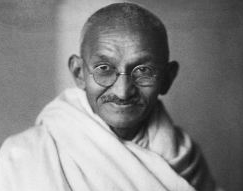Los Angeles, Apr 28: People who experience loss of smell as one of the COVID-19 symptoms are likely to have a mild to moderate clinical course of the disease, according to a study which may help health care providers determine which patients require hospitalisation.
The findings, published in the journal International Forum of Allergy & Rhinology, follows an earlier study that validated the loss of smell and taste as indicators of infection with the novel coronavirus, SARS-CoV-2.
According to the scientists from the University of California (UC) San Diego Health in the US, patients who reported loss of smell were 10 times less likely to be hospitalised for COVID-19 compared to those without the symptom.
"One of the immediate challenges for health care providers is to determine how to best treat persons infected by the novel coronavirus," said Carol Yan, first author of the current study and rhinologist from the UC San Diego Health.
"If they display no or mild symptoms, can they return home to self-quarantine or will they likely require hospitalisation? These are crucial questions for hospitals trying to efficiently and effectively allocate finite medical resources," Yan said.
The findings, according to the researchers, suggest that loss of smell may be predictive of a milder clinical course of COVID-19.
"What's notable in the new findings is that it appears that loss of smell may be a predictor that a SARS-CoV-2 infection will not be as severe, and less likely to require hospitalisation," Yan said.
"If an infected person loses that sense, it seems more likely they will experience milder symptoms, barring other underlying risk factors," she added.
Risk factors for COVID-19 previously reported by other studies include age, and underlying medical conditions, such as chronic lung disease, serious heart conditions, diabetes, and obesity.
In the current study, the scientists made a retrospective analysis between March 3 and April 8 including 169 patients who tested positive for COVID-19 at UC San Diego Health.
They assessed olfactory and gustatory data for 128 of the 169 patients, 26 of whom required hospitalisation.
According to the researchers, patients who were hospitalised for COVID-19 treatment were significantly less likely to report anosmia or loss of smell -- 26.9 per cent compared to 66.7 per cent for COVID-19-infected persons treated as outpatients.
Similar percentages were found for loss of taste, known as dysgeusia, they said.
"Patients who reported loss of smell were 10 times less likely to be admitted for COVID-19 compared to those without loss of smell," said study co-author Adam S. DeConde.
"Moreover, anosmia was not associated with any other measures typically related to the decision to admit, suggesting that it's truly an independent factor and may serve as a marker for milder manifestations of Covid-19," DeConde said.
The researchers suspect that the findings hint at some of the physiological characteristics of the infection.
"The site and dosage of the initial viral burden, along with the effectiveness of the host immune response, are all potentially important variables in determining the spread of the virus within a person and, ultimately, the clinical course of the infection," DeConde said.
If the SARS-CoV-2 virus initially concentrates in the nose and upper airway, where it impacts olfactory function, that may result in an infection that is less severe and sudden in onset, decreasing the risk of overwhelming the host immune response, respiratory failure, and hospitalisation, the scientists added.
"This is a hypothesis, but it's also similar to the concept underlying live vaccinations," DeConde explained.
"At low dosage and at a distant site of inoculation, the host can generate an immune response without severe infection," he added.
Loss of smell, according to the study, might also indicate a robust immune response which has been localised to the nasal passages, limiting effects elsewhere in the body.
Citing the limitations of the study, the scientists said they relied upon self-reporting of anosmia from participants, which posed a greater chance of recall bias among patients once they had been diagnosed with COVID-19.
They added that patients with more severe respiratory disease requiring hospitalisation may not be as likely to recognise or recall the loss of smell.
So the researchers said more expansive studies are needed for validating the results.
 London, May 14: Three explosive letters that highlight Mahatma Gandhi's deep concerns over the behaviour of his eldest son, Harilal, will go under the hammer at an auction in England next week.
London, May 14: Three explosive letters that highlight Mahatma Gandhi's deep concerns over the behaviour of his eldest son, Harilal, will go under the hammer at an auction in England next week.




Comments
Add new comment